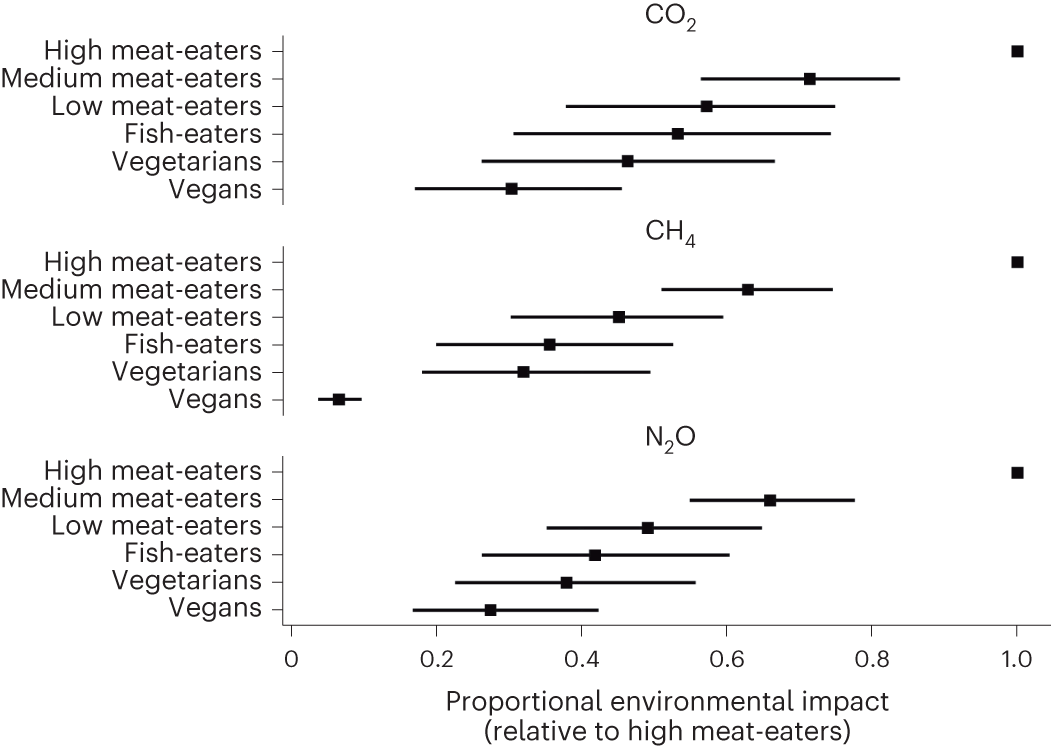University of Oxford Study Shows Vegan Diets Create a Healthier Environment and You
How can we significantly reduce greenhouse gas emissions, heal the environment, and have healthier lives? According to newly released research from the University of Oxford, the answer is the same for all three: Adopt a more plant-based diet.
To reach these conclusions, researchers at the University of Oxford modeled four different types of diets for the year 2050. The scenarios included one with minimal vegetables and fruits; a diet with a limited amount of red meat; a vegetarian diet and a vegan diet. The results of this study were unambiguous. Our current food system is one of the largest overall contributors to climate change through greenhouse gasses, totaling about one-third of all emissions. In addition to the significant carbon dioxide emissions that animal agriculture and growing crops to feed these animals cause, our food system also accounts for 70 percent of freshwater usage and contributes to 78 percent of all pollution to freshwater.
www.nature.com
In contrast to diets that were meat-heavy, the Oxford study showed a vegan diet reduced land usage by 75 percent, water use by 54 percent, and cut the loss of precious biodiversity by 66 percent. A vegan diet was considered to be one that avoided meat, dairy, eggs, and all animal products more generally. The effects of a vegan diet didn’t stop at positive environmental impacts. It was also shown that removing animal products from one’s diet could save 8.1 million lives by cutting the consumption of meat, eating more vegetables and fruits, and lowering obesity rates. On a global scale, diets that are higher in meat and lower in vegetables and fruit carried the largest negative health impacts.
Whether you reduce meat consumption or commit to the greatest net impact by eliminating animal products altogether, the takeaway from this study is clear: Eating less meat equates to a healthier planet and you. At Barn, we’d add that it leads to a happier Mike, Little Dude, and Harper when we cause less suffering to their friends who are victimized by the current food system.
Full Study Reference:
Scarborough, P., Clark, M., Cobiac, L. et al. Vegans, vegetarians, fish-eaters and meat-eaters in the UK show discrepant environmental impacts. Nat Food 4, 565–574 (2023)

